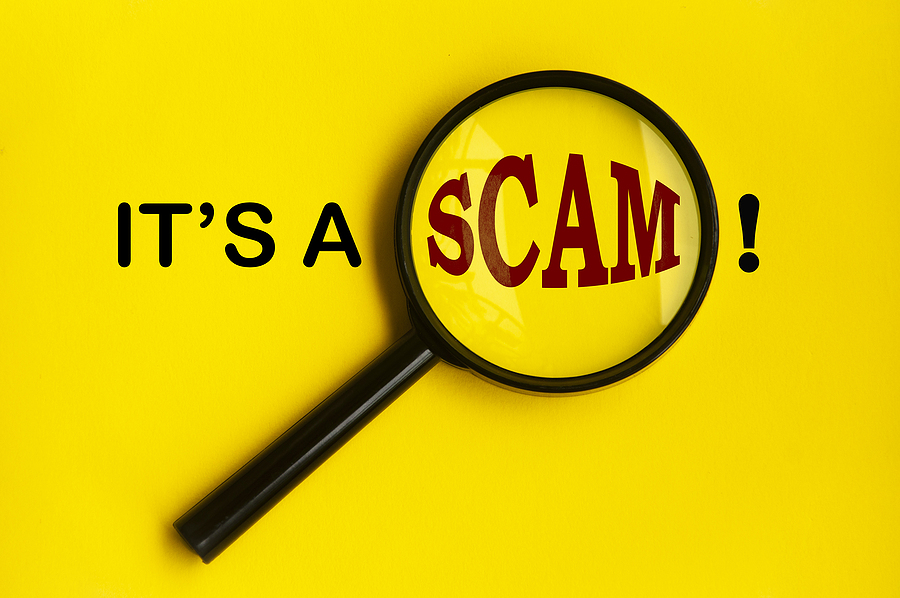Getting rid of an old, damaged, or non-running vehicle should be straightforward—find a buyer, agree on a price, and complete the sale. Unfortunately, the cash for junk cars industry attracts its share of unscrupulous operators looking to take advantage of unsuspecting sellers.
Junk car scams are more common than many people realize. These fraudulent schemes can leave you with less money than promised, unexpected fees, or even ongoing legal liabilities. The good news is that most scams follow predictable patterns, and knowing what to watch for can protect you from becoming a victim.
Whether you’re dealing with your first junk car sale or you’ve sold vehicles before, understanding these warning signs will help you navigate the process safely and get fair value for your vehicle.

Warning Signs of Junk Car Buyer Scams
Recognizing the red flags of car buying scams can save you time, money, and frustration. Here are the most common warning signs that indicate you may be dealing with a fraudulent buyer:
❶ Dramatically Different Quotes After Inspection
One of the most frequent junk car scams involves lowball offers that appear after the buyer inspects your vehicle. You might receive an impressive quote over the phone—say $800 for your damaged sedan—only to have the buyer claim the car is worth $200 when they arrive.
Legitimate junk car buyers provide realistic estimates based on the information you provide. While minor adjustments may occur during inspection, drastic price changes often signal a scam. Reputable companies ask detailed questions about your vehicle’s condition upfront to provide accurate quotes.
❷ High-Pressure Sales Tactics
Scammers often create artificial urgency to prevent you from thinking clearly or seeking other options. They might claim their offer is only valid for the next hour, or insist you must decide immediately to receive free junk car removal services.
Legitimate buyers understand that selling a vehicle is a significant decision. They’ll give you time to consider their offer and won’t pressure you into accepting on the spot. Trust your instincts if someone is pushing too hard for an immediate commitment.
❸ Lack of Proper Documentation
Professional junk car buyers maintain proper licensing, insurance, and business registration. Scammers often operate without these credentials, which puts both you and them at legal risk.
Before agreeing to any transaction, ask to see the buyer’s license and insurance information. Legitimate companies willingly provide this documentation and often display their credentials prominently on their websites and vehicles.
❹ Suspicious Payment Methods
Payment-related scams take several forms in the junk car industry. Some buyers offer to pay with personal checks that later bounce, while others promise to mail payment after taking possession of your vehicle. More sophisticated scammers might propose wire transfers or cryptocurrency payments that are difficult to trace or reverse.
Cash payments, while seemingly straightforward, can also present problems if the buyer claims they paid more than they actually did or if you can’t verify the bills are genuine.
❺ Hidden Fees and Unexpected Charges
Some buyers quote attractive prices but add unexpected charges during the transaction. These might include fees for towing, paperwork processing, environmental disposal, or administrative costs that weren’t mentioned in the initial quote.
Legitimate companies are transparent about all costs upfront. If towing is free, they’ll state that clearly. If there are any fees, they’ll explain them before you agree to the sale.
Protecting Yourself Through Due Diligence
Taking time to research potential buyers significantly reduces your risk of falling victim to junk car scams. Here’s how to verify you’re working with a reputable company:
Research Company Credentials
Start by verifying the buyer’s business registration and licensing status. Most states require junk car buyers to hold specific licenses, and this information is typically available through state business registries or licensing boards.
Check if the company maintains proper insurance coverage. Reputable buyers carry liability insurance to protect themselves and their customers during vehicle pickup and transportation.
Read Reviews and Check References
Online reviews provide valuable insights into a company’s reputation and business practices. Look for patterns in customer feedback—multiple complaints about bait-and-switch pricing or payment issues should raise immediate red flags.
Don’t rely solely on the company’s website for testimonials. Check independent review platforms, Better Business Bureau ratings, and social media comments for more balanced perspectives.
Verify Contact Information
Legitimate businesses maintain consistent contact information across all platforms. Scammers often use temporary phone numbers, generic email addresses, or post office boxes instead of physical addresses.
Call the company’s listed phone number to ensure it connects to a real business with knowledgeable representatives who can answer detailed questions about their services.
Request a Free Offer From Our Auto Scrappers! ✅
Safe Payment Practices
How you receive payment for your junk car affects both your immediate financial security and potential future complications.
Secure Payment Methods
Bank checks from established financial institutions offer more security than personal checks, but they still carry some risk. Cashier’s checks provide additional protection, though sophisticated scammers sometimes create convincing counterfeits.
Electronic payments through established services can be safer than cash, but ensure you understand the platform’s dispute resolution process before accepting this payment method.
Documentation Requirements
Regardless of payment method, maintain detailed records of your transaction. Document the agreed-upon price, any conditions or contingencies, and the buyer’s contact information.
Take photographs of your vehicle before the buyer arrives, including any damage or missing parts. This documentation protects you if disputes arise later about the vehicle’s condition.
Legal Considerations and Title Transfer
Properly transferring ownership protects you from ongoing liability for a vehicle you no longer own.
Title Transfer Process
Complete the title transfer immediately when you receive payment. Never allow a buyer to take possession of your vehicle without completing this critical step. Some scammers avoid title transfers to prevent you from completing the sale if they decide to back out.
Each state has specific requirements for title transfers, but generally, you’ll need to sign the title over to the buyer and may need to complete additional paperwork with your state’s motor vehicle department.
Protecting Yourself from Future Liability
Until the title transfer is complete, you remain legally responsible for the vehicle. This means you could be liable for parking tickets, accidents, or other issues involving your former car.
Follow up with your state’s motor vehicle department to confirm the title transfer was processed correctly. Some states offer online systems where you can verify the change of ownership.
Frequently Asked Questions
How can I tell if a junk car buyer is legitimate?
Legitimate buyers maintain proper licensing, provide consistent contact information, offer transparent pricing, and have positive customer reviews from independent sources. They’ll also readily provide documentation of their credentials when requested.
What should I do if a buyer tries to change the price at the last minute?
Stand firm on the agreed-upon price unless there were genuine misunderstandings about your vehicle’s condition. If the buyer won’t honor their original quote, consider it a red flag and look for other buyers.
Is it safe to accept cash for my junk car?
Cash transactions can be safe if you take proper precautions. Meet in a public location, verify the bills are genuine, and count the money carefully before signing over the title. However, other payment methods often provide better documentation and security.
What paperwork do I need to complete when selling my junk car?
You’ll need to transfer the title to the buyer and may need to complete additional state-specific forms. Remove the license plates (requirements vary by state) and notify your insurance company to cancel coverage on the vehicle.
How can I find reputable junk car buyers in my area?
Research local companies online, check their licensing status with state authorities, read customer reviews, and ask for referrals from trusted mechanics or auto repair shops in your area.
In Summary
Selling a junk car doesn’t have to be complicated or risky. By staying alert to common scam tactics, verifying buyer credentials, and following proper legal procedures, you can complete your sale safely and get fair value for your vehicle.
Remember that legitimate buyers want to build long-term reputations in their communities. They’ll be patient with your questions, transparent about their processes, and professional in all their interactions. If something feels wrong or too good to be true, trust that instinct and look elsewhere.
The junk car market offers many honest, reliable buyers who provide fair prices and professional service. Taking time to find the right one protects both your immediate interests and your long-term peace of mind.
Ready to sell your junk car safely? Get a free quote today from verified, licensed buyers in your area and experience the difference that working with reputable professionals makes.
Related Post: How to Find Reputable Scrap Car Buyers in Indianapolis
